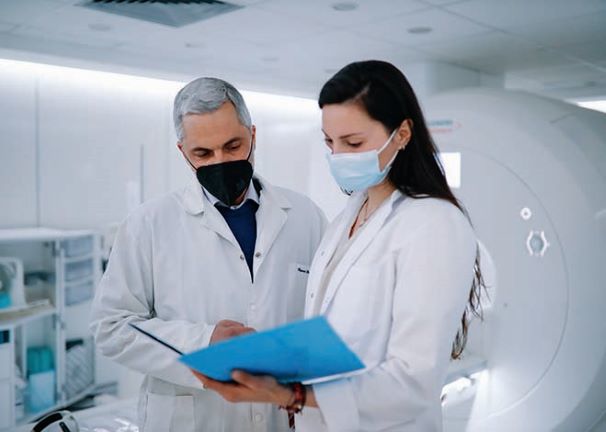Addiction specialist weighs in on alcohol awareness
Apr 28, 2020

Since 1987, each April has been nationally recognized as Alcohol Awareness Month. Then and now, the intent behind this month is to encourage open conversations about alcohol use and to break stigma surrounding alcohol dependence. To that end, we’ve talked to Melody Law, MD, addiction specialist at Adventist Health Clear Lake, about her work in addiction medicine.
1. Tell us more about your work in addiction medicine and the program at Adventist Health Clear Lake.
I specialize in addiction medicine treatment and see patients with alcohol dependence or dependence on other substances such as opioids, methamphetamines, smoking or marijuana use disorder. In our program at Adventist Health Clear Lake, we also have a chemical dependency counselor who works with me to help patients who need additional counseling or closer attention. Sometimes patients who come to see us have co-current mental health diagnoses and simultaneously work with a psychiatrist or therapist as part of their treatment.
At Adventist Health Clear Lake, we have an outpatient program where patients can see a one-on-one counselor. Or, they can go three times weekly to a structured meeting to learn specific ways to cope with stressors or triggers. If a person needs a higher level of care, we can refer them to inpatient programs that range from one to three months in length. Part of our outpatient treatment can also include medication to help decrease withdrawal symptoms so that people can tolerate treatment.
2. Alcohol and substance dependence can be misrepresented in society and media. How can we better understand addiction?
It’s important to understand that substance use disorders do not discriminate in social status or economic barriers. They occur among all social statuses, both genders, and a lot of people hide them really well. Many people are ashamed to seek help because of the stigma. Additionally, sometimes family members or friends don’t understand the nature of the disease and can be unintentionally enabling.
Addiction is a brain disease. It occurs when the brain specifically chooses to cope with chemicals to deal with something negative, intolerable or sad. We cannot minimize the nature of the disease. Hopefully, understanding that it is a brain disease will help loved ones to not look down on those who are struggling and will encourage them to seek help.
3. What should I do for a loved one who is struggling?
Seeking care partly comes down to the readiness of the individual. If a person is deep in addiction, they simply may not be ready to seek help. That said, there are long-term consequences of alcohol dependence that might not be apparent at first glance. It ruins the liver and patients can die from alcohol-related health issues.
Encouragement is the best thing you can offer a loved one who is struggling with an addiction or with any mental health condition. Encourage your family member or loved one to seek help. Urge them to see their primary care provider. Primary care providers offer screenings to help patients who may be struggling with substance dependence. From there, a healthcare provider can refer someone to treatment options or programs.
4. How should parents talk to their children about alcohol?
Parents should talk to their children about all substances, including alcohol and marijuana. Many of these substances seem normalized by society, but there are risks that we all need to be aware of. Discuss underage drinking with your children. Most of the time, a young person who drinks alcohol does not know their limit, and they can die from alcohol intoxication.
Discuss drinking as a family and have an open line of communication. Once a person is intoxicated, the brain is not able to execute normally and make correct decisions. It can lead to the use of other drugs or other unintentional actions. Even though alcohol is legal, it’s critical for all of us to understand that there are consequences.
5. Anything else important to add?
One of the biggest reasons people fail to seek treatment is the stigma associated with addiction. If you have a loved one who is struggling, make sure they know you are not looking down on them, that you are supporting them and encouraging them to seek help. Healthcare providers are there to provide encouragement and support as well—our focus should always be on patient care and health improvement.
Related articles

This Dietitian’s Journey Led Her to the Boston Marathon Finish Line
June 7, 2024

When to go to the emergency room or doctor’s office
May 19, 2021

Men’s Health Month: Prevention and screenings you need
June 1, 2021